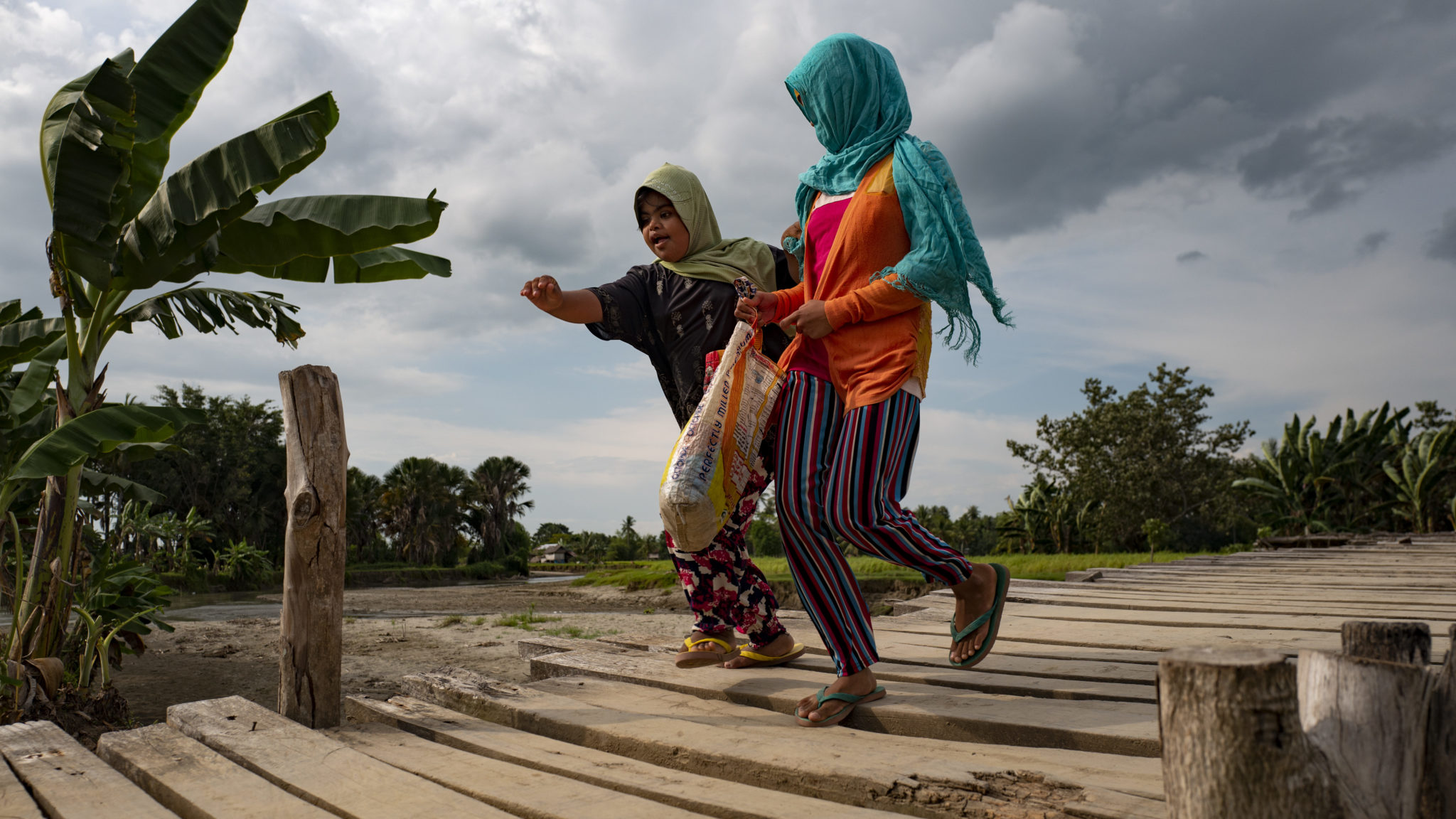Victory for Children’s Rights: Ending Child Marriage in the Philippines
Law supported by the Center provides social protection measures to prevent and combat the harmful practice.

In a victory for the health, safety and human rights of children, the Philippines has enacted a new law that seeks to prevent and end child marriage. While President Rodrigo Duterte signed the law on December 10, 2021, it was only publicly released by Malacañang on January 6, 2022.
Although the country’s previous law recognized the legal age of marriage as 18, child marriage has been commonly practiced in certain religions and cultures in the Philippines. The Center for Reproductive Rights supported the development of the new law, which makes child marriage a public offense and adds a series of penalties for violating the law ranging from fines to up to 12 years of imprisonment.
The consequences of child marriage on girls and boys are numerous and far-reaching, directly causing grave harms, including the denial of education, perpetuation of poverty, and increased likelihood and risks of early pregnancy, childbirth, maternal mortality, and sexual violence.
“We’re pleased that the government has finally recognized that child marriage is a fundamental human rights violation harming the health and safety of girls and boys,” said Jihan Jacob, Senior Legal Adviser for Asia at the Center for Reproductive Rights. “This new law represents a significant first step in safeguarding the rights of children in the Philippines.”
The Center’s Asia team has been advocating for stronger laws to strengthen protection and respect the reproductive autonomy for the rights of children, including adolescents, in the Philippines. The team’s advocacy included: submitting reports on the status of adolescents’ reproductive rights to the UN Committee on the Rights of the Child (March 2020, October 2020); participating in several consultations on the then-pending bill organized by local organizations and legislators; and sharing comparative research on child marriage including from India, Nepal, and South Asia with policymakers and NGOs to help inform the legislation and the impact on sexual and reproductive health and rights of children.
New Law Adds Strong Penalties for Offenders
The Center’s Submissions to the UN Committee on the Rights of the Child (Philippines)
The new law, Republic Act No. 11596, or An Act Prohibiting the Practice of Child Marriage and Imposing Penalties for Violations Thereof, contains strong penalties for those who arrange or facilitate, participate, and/or officiate the marriage of a person under 18. Considered a public offense, child marriages will also be considered “void ab initio,” meaning they would not be legal. The law allows for a one-year transitory period during which the penal provisions will be suspended specifically for Muslims and Indigenous peoples.
Penalties include:
- A person who causes, fixes, facilitates, or arranges a child marriage will be subject to fines and/or prison time, with a penalty of up to 12 years in prison if the perpetrator is a parent, step-parent, or guardian of the minor.
- Those who violate the law by performing or officiating the formal rites of a child marriage will also receive fines and/or prison time, and those in positions of public office will be disqualified from office.
Girls Are Especially Harmed by Consequences of Child Marriage
In the Philippines, one in six girls are married before turning 18. Child marriage has a range of negative impacts on the health and lives of young people, especially young girls, and triggers a continuum of human rights violations that continue throughout a person’s life.
For girls in particular:
- Child marriage is often accompanied by early and frequent pregnancy and childbirth, which also results in increased maternal mortality rates.
- For girls, child marriage perpetuates the cycle of engendered poverty, preventing many of them from continuing their education and reducing their employability.
- Girls who marry before the age of 18 are more at risk of being subject to physical, sexual and emotional violence.
New Law Based on a Foundation of Human Rights
“Child, early, and forced marriages limit opportunities across the board, including those around sexual and reproductive decision-making,” added Jacob. “That’s why it’s so essential to have proper, human-rights-based legal frameworks to prevent child marriage and ensure accountability. By enacting this new law, the Filipino government is signaling a legal shift that formally recognizes the rights, dignity, and well-being of minors.”
Under the Convention on the Rights of the Child and the Convention on the Elimination of All Forms of Discrimination Against Women, governments must take steps to address and provide redress to rights violations, and the decision in the Philippines is an important move towards ensuring prevention and accountability. It is critical for nations and governments around the world, especially where child marriage is common practice, to acknowledge their obligations under international human rights law to act against child marriage and its resulting human rights violations.
More Reform Needed to Effectively End Child Marriage in the Philippines
“Criminalization is just the first step, and we’re hopeful this law will bring about a host of other actions to combat the entrenched cultural biases and harmful stereotypes that have allowed child marriage to occur for so long,” said Jacob.
Government’s efforts to prohibit child marriage must include measures to challenge entrenched social norms and discriminatory gender stereotypes that underlie the practice of child marriage in the country. According to the UN Human Rights Council, “The criminalization of child, early and forced marriage alone is insufficient when introduced without complementary measures and support programmes.”
Under the new law, the Department of Education will develop a sexual education curriculum that will include culturally sensitive modules and discussions around the impacts of child marriage in order to shift social norms and attitudes. In addition, the law directs other government agencies to develop programs and campaigns aimed at raising awareness about the effects of child marriage and protecting victims.
To end child marriage, ongoing programs and investment to support victims and develop a foundation of human rights in the Philippines will be essential to ensuring women and girls can thrive.
In developing the implementing rules and regulations of this law, the Center calls on the government to continue its efforts to respect, protect, and fulfill the rights of children and adolescents in the Philippines by enabling them to make informed and autonomous decisions about their sexuality and reproduction and ensuring access to sexual and reproductive health information and services. The Center also calls on the government to ensure that mechanisms are in place to guarantee implementation of the provisions related to support, property relations, and custody.
Child Marriage in the Philippines
- One out of six (16.5%) Filipina girls are married before they are 18 years old, according to the 2017 Philippine National Demographic and Health Survey (NDHS).
- The Philippines ranks tenth in the world for the number of girls who are married or in a union before the age of 18: 808,000, according to the organization Girls Not Brides.
- Girls who marry before the age of 18 are more at risk of being subject to domestic violence. According to the 2017 NDHS, 26.4% of married women aged 15-19 years old reported experiencing physical, sexual or emotional violence.

